Civics Form Two Questions and Answer All Topics
Download Free Notes based on Competency questions and Answers for Civics Form Two, Get Full Civics Form Two Questions and Answer All Topics
TOPIC ONE: PROMOTION OF LIFE SKILLS
QN:1 What do you understand about the following terms? a. Social problem b. Problem solving techniques
SOCIAL PROBLEM is a condition or behaviour that has negative effects to the community. Social problems may include poverty, diseases, drug abuse, conflicts, gender inequality, inadequate supply of social services etc,
PROBLEM SOLVING TECHNIQUES refers to the ways or methods that are applied by a person or a group of people to deal with the difficult situation in the societies and find out the better solutions.
QN: 2 What six ways can be used to solve the problems that face many people in the family level?
SOCIAL PROBLEM-SOLVING TECHNIQUES
- Cooperation. A person, who has a problem, exposes it to other people around him or her. People can decide to make contribution of their ideas in order to solve that problem.
- Hard working. Sometimes, some problems are caused by laziness, for example lack of food and good clothes. These problems can be solved by working hard so as to get better achievement.
- Guidance and counselling. There are some of the problems which cannot be solved physically or mentally, instead they need psychological treatments. This can be applied to the people who have mental or emotional suffering like people with HIV/AIDS.
- Seeking advice from individual person. In our daily life, there are people who are considered to be wise with the knowledge and experience about the problems. So, some people who are facing with various problems pay list to these people seeking the advice of their problems
- Reading the book. Some books are providing various knowledge in life.
- Consult expertise. There are some problems which may not be solved by individual people instead need collective solutions.
QN:3 Whenever any society face social problem it is important to apply social-problem solving techniques. Why do you think it is important to do so in our communities? Give six points OR Identify six benefits of applying problem solving techniques in our societies
IMPORTANCE OF APPLYING SOCIAL PROBLEM-SOLVING TECHNIQUES
- Promotion of peace and security. Effective application of social problem-solving techniques reduces the numbers of social problems in the society and promote peace, security, unity and a strong bond among the citizens
- Disease control. Application of social problem-solving techniques is a very important aspect to control diseases. These diseases may include communicable and non- communicable diseases
- Promoting development in the society. Effective promotion of social development activities enables people to engage themselves in different economic activities rather than spending a lot of time figuring out how to solve social problems
- Provision of solution to various problems. The use of social problem-solving techniques helps individuals or a society to get possible solutions to a number of unresolved social problem
- Minimization of cost. The provision of appropriate locally social problem techniques helps to reduce unnecessary cost which would have been incurred by external experts to solve some social problems
- Making people active and useful. Social problem-solving techniques enable people to participate in various productive activities. Through these techniques, people can solve their social problems and become more active and useful members of the society.
- Reduction of social problems. People in a given society should take effective measures to overcome various social problems.
QN: 4 Outline six problem that your society is likely to face if appropriate social problem-solving techniques are not applied.
CONSEQUENCE OF NOT APPLYING APPROPRIATE SOCIAL PROBLEM-SOLVING TECHNIQUES
- Death. Failure to apply appropriate social problem-solving techniques can cause death especially if one fails to control problems example communicable diseases
- Exposure to stress and depression. When people face social problems and fails to apply appropriate social problem-solving techniques, they may experience stress and depression.
- Irrational decision making. Failure to use appropriate social problem-solving techniques can lead to irrational decision making in solving the problem. Example, a student without pocket money may decide to steal instead of asking for financial assistance
- Increase of dangerous life style. Failure to apply social problem-solving techniques can lead some people in the society to hold unethical life style example prostitution, robbery, drug abuse etc.
- Poor work performance. Failure to apply social problem-solving techniques can lead workers fail to fulfil their responsibilities effectively
QN: 5 In six points, analyze how can you help your father to solve the problem facing your family members. Which steps will you most consider?
STEPS IN SOCIAL PROBLEM-SOLVING
- Identifying the problem. In this step, the social problem experienced should be identified so that it becomes familiar to those who are responsible to solve it
- Collecting Information. This is the stage whereby all necessary information concerning the identified social problem is collected.
- Defining the Problem. This is the explanation of the conflict and disagreements between people. The problem should be well known before solving it
- Generating alternatives. This involves the generating of many solutions which ultimately assist in problem solving
- Agreeing to a solution. This is the step of making agreement which can be involve what to do in order to avoid the reoccurrence of the same problem
- Carrying out evaluation. At this step the person in-charge determines whether or not the solution applied to solve the social problem has been successful.
QN: 6 In five points identify the methods of gathering information for solving social problems
METHODS OF GATHERING INFORMATION FOR SOCIAL PROBLEMS-SOLVING
- Observation. Through this method, a person responsible to resolve a problem may obtain relevant information by observing what is actually happening.
- Interview. This method involves the collection of data through face- to- face conversation between interviewer and interviewee.
- Questionnaire. This is method involves a list of questions to be answered by respondents in a writing form. This method is useful in collecting information from a large sample size within a short period
- Mass media. This is a method of collecting information involving the use of various presses like television, radio, newspaper, journals blogs, social media and websites.
- Documentary review. This method involves the use of authoritative documents such as books and other publications to obtain information. For example, through books and other publication, a person can get information on how to address a social problem.
- Scientific experiment. This method involves conducting experiments in the laboratory. These experiments provide useful data for solving various problem in the society like diseases.
TOPIC TWO: THE GOVERNMENT OF THE UNITED REPUBLIC OF TANZANIA
QN: 1 What do you understand by the following terms? a. Government (b). Law (c). Executive (d). Village government e. Legislature f. Judiciary g. Local government h. Central government
GOVERNMENT is the group of people with power and authority to enforce laws of in a country
LAW is the system of rules that a country or community recognizes as regulating the actions of its members
EXECUTIVE is the organ of the state that deals with administrative functions. The head of the executive is President who is elected by all adult citizens in the country during the general election. The Executive of the united republic of Tanzania composed of President, Vice president, Prime minister, cabinet of ministers, ministers, deputy ministers and civil services.
VILLAGE GOVERNMENT is the smallest unit of a local government based on rural authorities which is formed due to the collection of hamlets to form a village.
LEGISLATURE is the organ of the central government which makes laws of the state and set the government budget
JUDICIARY is the organ of the central government which interprets the laws of the state
LOCAL GOVERNMENT is a system of government formed at the grass-root level to assist the central government in matters of administration.
CENTRAL GOVERNMENT is the national government which deals with the matter or affairs of the whole nation
QN: 2 Differentiate between the following a. Rural authority and urban authority b. Village assembly and village council c. democratic government and non-democratic government, d) Loans and grants e) Absolute monarchy and constitutional monarchy
RURAL AUTHORITIES are the local government authorities which range from the village government, Ward government and District council while, URBAN AUTHORITIES are the local government authority which based on the urban level. This include Town Council, Municipal council and City council
VILLAGE ASSEMBLY is the organ of the village government which comprises all adult members of the village. This organ is headed by a chairperson who is elected by the villager’s while VILLAGE COUNCIL is the organ of the village government which performs the day to day village activities. This organ composed of 25 members elected by the village assembly
DEMOCRATIC GOVERNMENT is the type of the government in which the political power and authority is determined by the popular election while NON-DEMOCRATIC GOVERNMENT is the type of government where y, a leader come into power by force without considering the people’s votes
LOANS are money lent temporarily from banks of non-governmental organization which must be returned While GRANTS are funds that are donated and do not require repayment
ABSOLUTE MONARCHY is the type of monarchy in which a King or Queen is the head of the state and the government While CONSTITUTIONAL MONARCHY is the type of monarchy in which King or Queen is only head of the state and the prime minister become the head of government.
QN: 3 By giving five points, show why the government of Tanzania is important in the improving the development to the people in the country?
IMPORTANCE OF GOVERNMENT
- To maintain peace and security in the country. Government maintains peace and security through its instruments such as legal institutions, armed forces and police force
- Provision of social services. Government provides social services to the people in the country
such as health service, education, water, electricity and transport for the welfare of the people
- Designing policies. The government has the power to design policies in various sectors of the economy and viable development plans for the welfare of the nation.
- Protection and conservation of natural resources. These includes mountains, water bodies, minerals, wildlife and forests
- Human rights protection. Government protects the human rights and the freedom of the all
people in the country
- Conflicts resolution. Government resolves the conflicts and disputes which may rise between institutions or international conflicts or among the people in the country
- To increase national income. Government is responsible in raising revenues within a country
for the development of the country.
QN: 4 Assume you have been appointed by your Civics teacher in your class to explain the functions of the Executive of the United Republic of Tanzania to your fellow students, what your five points will you consider? OR By using six points comment on the relevance of the statement that the arm of the government that deals with administration is very crucial to the country.
FUNCTION OF EXECUTIVE
- Enforcing laws. The Executive carries out and enforce laws to protect the individual rights. Each government department is responsible for the implementation of laws and principles.
- Signing treaties. It is the responsibility of the Executive to sign treaties with other countries. The Executive also responsible to negotiate treaties in accordance with the provision of different national laws and procedures defined by international laws.
- Maintaining peace and security. Executive is responsible in maintaining peace and security in the country by protecting the country from any event related to internal or external conflicts
- Formulate and execute foreign policies. Executive is responsible in formulating the foreign policies of the state and to promote the foreign relations
- Making major appointments. The executive has the role of making major appointment such as judges of high court, chief justice, Attorney General, ambassadors etc
- Implements all decisions reached by the legislature. Executive play an important role to implement the decisions which were reached by the parliament
- Plans and implements social and economic development projects. Executive is responsible in planning and implementing the development projects for the welfare of the people in the country
QN: 5 Chapter two, article 33 provides for the existence of the united republic who shall be the head of the state, the head of government and the command in chief of the armed forces. With reference to such provision which six responsibilities are likely to be carried out by the president as a head of the state
FUNCTIONS OF PRESIDENT AS A HEAD OF THE STATE
- He or she represents Tanzania abroad
- He or she signs treaties with foreign countries
- He or she is a symbol of national unity
- He or she assents or disapprove parliamentary bills
- Has a special power to pardon or give respite to criminals convicted in courts
QN: 6 Suppose you are a student of Haki secondary school and you get a chance to visit the National Assembly in Dodoma to learn the parliamentary activities. Narrate five functions of the parliament of Tanzania. OR The state consists of three organs and each organ has its own function to perform. As a civics expert, clearly show six roles of the parliament in developing a nation.
FUNCTION OF PARLIAMENT/ LEGISLATURE
- To makes the laws of the state. All laws of the state are made by the Legislature.
Legislature is the supreme organ in the country to make laws
- To discuss and pass the annual budget. The annual budget of the state is discussed and passed by the members of the parliament before the starting of new money year.
- To discuss and prove long- and short-term plans. The parliament of Tanzania is responsible in authorizing any long- or short-term development plans to be implemented in the country
- To ask the questions for the clarification. The members of parliament ask the questions to the ministers for the clarification concerning public affairs in the country which are within their responsibilities
- To reviews the works done by the government. Legislature is responsible in reviewing and follow-up the activities which were performed by the Executive
- To approve the appointment of prime minister
QN: 65 Explain briefly five kinds of members of parliament who attend the national assembly
CATEGORIES OF MEMBERS OF PARLIAMENT
- Members of Parliament represent their constituencies (264 constituencies)
- Five members who represent the house of representatives of Zanzibar
- Ten members nominated by the President
- Women members who represent their political parties that participate in general election, not less than 30 percent
- The Attorney General who is appointed by the President and he or she attends the parliament by virtue and has no right to vote
QN: 7 The president of the united republic of Tanzania has mandate to dissolve the parliament whenever needed. Briefly explain six constitutional circumstances that may lead the president to exercise the power towards his decision
CIRCUSTANCES THAT MAY LEAD THE PRESIDENT TO DISOLVE THE PARLIAMENT
- End of parliamentary term. The president has the authority to dissolve the parliament at the end of its term which is normally after five years.
- Vote of no confidence. If the parliament passes a vote of no confidence in the government or the prime minister, the president may dissolve the parliament and call for new election.
- Failure to approve the national budget. If the parliament fails to pass the national budget, the president may dissolve the parliament and call for new elections.
- Public demand. If there is a strong public demand or outcry for new election or change in the government, the president may dissolve the parliament and call for new election.
- Corruption or misconduct. If there is evidence of corruption or misconduct among members of parliament or the government, the parliament may dissolve the parliament and call for new elections
- Failure to support important government policy. If the parliament fails to support government policy, the president may dissolve the parliament and call for new election
QN: 8 The students of Maendeleo secondary school want to know how the Judiciary of Tanzania is working to serve the people’s needs. As an officer in charge in Judicial system, elaborate five functions of this organ of the state
FUNCTIONS OF JUDICIARY
- To interpret the laws of the state. The Judiciary has the power to interpret the laws of the state enacted by the legislature for the welfare of the people in the country.
- Hearing and judging the cases. All cases which are presented to the court relating to disputes between citizens or institutions are heard and judged in the court of laws
- To protect the national constitution. The judiciary is responsible to ensure that, the laws of the
state which are obtained in the constitution are to be followed by all people in the country
- To protect the rights of the citizens. Judiciary is responsible to safeguard the rights of the
people. All citizens in the country have the rights to seek protection in the Judiciary in case of any violation of human rights
- To provide justice to the people in the country. The judiciary takes necessary steps to provide the justice to all people in the country without any kind of discrimination and oppression.
QN:9 Some people in a country tend to ignore the efforts of a government in the implementation of its policies in the country. As a citizen of Tanzania, give five points to explain the important roles of the central government of Tanzania
FUNCTIONS OF CENTRAL GOVERNMENT
- To Provide social services. The central government provides the essential social services such as education and health services which are needed by people in the country
- To Formulate policies. The central government through Executive formulates different policies for the well-being of the people in the country
- To provide the security in the country. The central government defends the nation, its people with their properties and resources found in the country from any internal or external enemies.
- To Enforce the laws. The central government enacts the laws and rules that guide all people in the country. This makes people to respect the rights of all people
- To regulate and maintain the economy of the country. The central government enacts laws and rules that guide the investors, issue licenses and collect tax for the development of the country
QN: 10 The government of Tanzania is now focusing on the implementations of various projects for the development in the country. In five points, show how the government gets its revenues for the accomplishment of those projects? OR National income generation within the country determines the level of development in a given country. With six points outlines the sources of central government revenue.
SOURCE OF CENTRAL GOVERNMENT REVENUE
- Direct and indirect taxes. The government collects the taxes from various sources such employees and private sectors which is direct tax, and also collects tax through imposing on goods or services
- Grants. This is the non-payable fund which the government received from the internal or external sources such as donor countries. Most of the grants are provided to the developing countries
- Customer or user charges. Central government collects revenues from users of different public services like water, power supply, transport and medical services. They are paid through the customers’ payments of bills.
- Licenses. Also, government collects revenues through selling the licenses to an individual or companies for offering services to perform certain function. Any trade or business which is conducted within the country should be given the license
- Loans. These are revenues in which the government obtains from borrowing money from either internal or external institutions. The government can borrow from other countries or international financial institutions such as world bank and IMF
- Dividends from Parastatals organizations. Dividends are payments made by a corporate to its shareholders. the government owns not less than 50% of shares in different Parastatals organization such as TANESCO, TTCL, NIC, NSSF, TPA. Once profit is made the government gets its dividends from these organizations
QN: 11 Tanzania revenues authority (TRA) collects revenues for the development of the country. In five points, show how the government of Tanzania spends it revenues?
EXPENDITURE OF CENTRAL GOVERNMENT REVENUE
- Paying salaries and wages. The government expends its revenues through paying the salaries to the government employees who are performing various government tasks such as doctors, teachers and other civil servants
- Improving social services. The central government spends it revenue to improve social services like education, health care, water, power supply.
- Building of infrastructures. A good example is the construction of Standard Gauge Railways (SGR), the modern railway from Dar es Salaam to lake zone regions such as Mwanza, construction of fly over at Ubungo to overcome the problem of traffic congestion and construction of the road from Mbezi-Dar es Salaam to Kbaha- Pwani
- Finances different schemes. A good example is Julius Nyerere Hydropower project (JNHPP) which was strategic project of producing the electricity of more than 2,115 megawatts in the river rufiji falls at Stigler’s Gorge
- Provision subsides to the local government. The central government provide grants to the local government to facilitate various economic projects in the councils
- Building capacity to government employees. This is done through conducting various seminars, workshops and conferences
QN: 12 The government of Tanzania established the local government authorities in order to serve people better from the local authorities. Give five functions of these authorities in the development of our country
Local government plays a vital role in the development of any country. prove it using six mandatory functions of it.
MANDATORY FUNCTIONS OF LOCAL GOVERNMENT
Mandatory functions are the functions which are performed by local government as directive from the central government. Those functions are performed according to the national laws. These include the following;
- Maintenance of laws and orders
- Making by-laws. By-laws are those laws that are made by the local authorities or organization and applied only to that area.
- Collection and proper utilization of revenues
- Consider, regulate and coordinate projects and plans
- Advancement of social and economic development. This is done in accordance with material policy and plans
- Promotion of social and economic welfare and well-being of all people within the area
PERMISIVE FUNCTIONS OF LOCAL GOVERNMENT
Permissive Functions These are the functions which the local government may perform depending on the nature of the area and availability of resources. These include the following;
- Building and letting of shops and houses
- Establishment, maintenance, operation and control of damaged sewage works
- Building and maintaining health centers and schools
- Charging fees for services and licenses
- Prescription of methods of agriculture and animal husbandry.
QN: 13 Suppose you are a councillor of Ngomeni ward which happens to have serious water shortage. Propose five sources of revenues for local government authorities which can be used to address the problem. OR The late president Dr. Magufuli used to emphasize on proper government expenditure. Use six points to show the source of local government income. OR As a well-educated student, suggest six sources of income which you think could help to generate income in your village?
SOURCE OF LOCAL GOVERNEMNT/ VILLAGE INCOME/ REVENUE
- Rent. Local governments impose the payment to the people who use and own some property, facility, equipment or service which are owned by the councils. Example of rent are house rent from council houses, rent from markets and shops
- Fees for business licenses. License is a permission from an authority to carry out an activity, own property or use something such as use of community centre like public ground or car parking ground for a certain activity
- Fines and penalties. Local government collect money from the people who are breaching by- laws of the authorities
- Financial assistance from the central government. Local government receive subsidies from central government to finance various projects and programs
- Money from services owned by the council. Including trade, industry, work etc
- Duties on trade. Duties are fees paid for a certain goods and services. Examples of duties which are imposed is custom duties on importing or exporting of trade goods
QN: 14 Assume you are the District Executive Director of Same district council which is the leading council for revenues collection in Tanzania. Explain five expenditures of the revenues in your council to facilitate the development in the district
LOCAL GOVERNMENT EXPENDITURE OF REVENUE
- Payment of salaries, and wages. Local government authorities pay the salaries and wages to the officials and employees of the council such as village executive officer, ward executive officer and civil servants who were employed by the councils.
- Paying operational cost. The council pays the operational cost for the administrative offices, for example telephone, water and electricity bills and updating computer software
- Developing economic activities. Economic activities such as agriculture, livestock keeping and small business enterprises are developed through the revenues collected from the councils. For example, provision of loans to the small group of entrepreneurs from the 10% of the income
- Improving social services. The provision of social services is improved through building and maintaining of schools and health centers
- Financing the development activities. This the development expenditures such as construction of infrastructures like roads maintenance, drainage sewage system and buildings
- Maintaining peace and security. Local government spends it revenues to ensure peace and security in their areas of control by building post
QN: 15 Assume you are a student of Nanenane secondary school in Morogoro, attended the school Baraza concerned on how students can participate in school function. Explain to your friend who was absent five ways as expressed to you by the head master.
STUDENTS PARTICIPATION SCHOOL FUNCTIONS
- Visiting people with special needs. A student can visit people with special needs living nearby school compound who are suffering from various physical disabilities. The student as other citizens, is required to visit these people and help them
- Protecting the school environment. A student is obliged to take part in protecting the school’s environment by planting trees and flowers, prune hedges and flowers and clean the school compound.
- Participating in various schools’ projects. A student is required to take part in creating various development projects of the school such as agriculture and art works
- Obeying the school rules and regulations. A student is obliged to obey the rules and regulations established by the school administration in order to bring peace and harmony in the school
- Participating in schools’ elections. A student should engage in school elections by electing their leaders such as class leaders, head boy and head girl. This participation enables a student to practice democratic activities
QN: 16 As a citizen of Tanzania, give five points to explain why it was necessary for the union between Tanganyika and Zanzibar of 1964? OR The union between Tanganyika and Zanzibar was not an overnight process but it was fostered by some motives. Explain six reasons for the union.
REASONS FOR UNION OF TANGANYIKA AND ZANZIBAR
- Common historical background. The people of these two countries were colonized by the British. Tanganyika was ruled by British from 1919 to 1961 and Zanzibar was ruled by British through Sultan until 10th December 1963
- Security factor. The union was created to protect these two countries from being invaded by the external enemies.
- Common language. Kiswahili as a medium of communication between these two countries. The leaders and their people meet to discuss different matters related to their countries
- Similar political ideologies. The political objectives of these countries were to benefit the majority. This made them to introduce the socialism system in which all major means of production were owned by public
- Enhancing African unity. When African countries began getting their independence there were calls to unite the continent. As a result, countries have formed unions
- Cooperation in social and economic activities. Tanganyika and Zanzibar had cooperation before, during and after colonialism in various economic activities such as fishing, agriculture, trade etc. This was made possible for Tanganyika and Zanzibar to unite and form one state.
QN: 17 Provide five points to defend the view that, the union of Tanganyika and Zanzibar is beneficial to Tanzanians. OR Briefly explain six importance of the union between Tanganyika and Zanzibar
IMPRTANCE/ BENEFIT/ADVANTAGIES OF THE UNION OF TANGANYIKA AND ZANZIBAR
- Free movement of people within these two countries. The union facilitates free movements of people from one place to another especially after removing the carrying passport
- It promotes peace, and security of the country. The union promote peace and security among the people who live within the boundaries of the united republic of Tanzania
- It accelerates political and socio-economic developments in the country. The union between Tanganyika and Zanzibar facilitates development in social, economic and political within the countries
- Improvement of social and cultural relation. The union between Tanganyika and Zanzibar made the people of the united republic of Tanzania to have strong relation and interaction in various political and socio-economic activities
- Strengthening of unity and cooperation. The union between Tanganyika and Zanzibar has made these countries to cooperate in various issues including agriculture, trade, industries etc
- Enhancing democratic principles. Through the union, these two countries have created and shared powers in different organs, this has helped to define a clear separation of power
QN: 18 As an officer from Ministry which deals with the union matters of the United Republic of Tanzania, propose five measures that can be taken to improve the union stability in Tanzania
EASURES TO IMPROVE THE UNION BETWEEN TANGANYIKA AND ZANZIBAR
- To create free movement of people. Free movement of people from island to mainland and vice versa without passports should be observed
- To introduce strong institution to deal with the union. The establishment of a ministry in the president office to deal with union affairs will make union to be strong
- Removing all trade barriers of the union. Encourage the trade between the people of Zanzibar and Tanzania mainland by removing all trade obstacles that encounter the traders
- To address all challenges facing the union. Leaders in both countries should meet together to discuss find the solution of different challenges facing the union
- Consolidate cooperation in cultural matters. To consolidate cooperation in cultural affairs such as sports and games by introducing the union cup.
TOPIC THREE: CONSTITUTION OF THE UNITED REPUBLIC OF TANZANIA
QN:1 Define the following terms a. Constitution b. National constitution c. Constitutional amendment d. Bill or rights e, Referendum
CONSTITUTION is the body of laws and basic principles that a country or an organization is governed by
NATIONAL CONSTITUTION is the basic laws and principles of the state which govern all activities of the state.
CONSTITUTIONAL AMENDMENT is the process of improving or changing some laws and clauses in the constitution
BILL is a proposal for a new law which can be originated either from government or private bill
REFERENDUM is a process whereby eligible citizens vote to decide on the proposed constitutional bill made by the national assembly
QN: 2 In Tanzania today there is ongoing discussion for constitutional reforms in the country. As a civics expert point out six importance of national constitution.
IMPORTANCE OF NATIONAL CONTITUTION
- Constitution protects the rights of an individual. The government of Tanzania protects the constitution because it protects the individual’s rights in the country
- Constitution creates equality. Always the constitution ensures that, the government is fair and justice to its citizens. There is the presence of equality due to the citizens respect the constitution
- It describes the form of the government. Constitution describes the form of the government used in a particular country. For example, Tanzania there is republic and union government
- Constitution resolves the disputes in the country. Also, the government of Tanzania protects the constitution because it gives the guideline on how to resolve the disputes among the people in the country.
- Constitution sets the limit of power to the leaders. Constitution defines the limit of power of the leaders in their positions. Those leaders in the country are required to rule according to the constitution
QN: 3 As a civics expert, show the relationship between the national constitution and the government. Six points.
RELATIONSHIP BETWEEN THE NATIONAL CONSTITUTION AND THE GOVERNMENT
- Taking the oath of leaders. The appointed government officials and leaders are sworn in and take an oath to defend and protect the constitution
- The constitution defines the forms of the government. The constitution defines the forms of the government to be used in the country
- Constitution established the role of state powers. The constitution established the state organs such as Executive, Legislature and Judiciary and outline the powers of those organs
- Constitution puts the practice of democracy. The government has to be based on principles of democracy, human rights, social justice and observance of sovereignty of the state as the constitution prescribes
- Constitution provides the guidelines to choose the government leaders. The government leaders are elected as per constitution and those who are elected had to serve according to the constitution’s
- Government activities reflect constitution. All government activities should reflect upon the constitution. The leaders perform the government activities as per constitution
QN: 4 President Samia S. Hassan and her government have a dream of safeguarding our constitution. As a civics expert, analyze six ways that are to be employed by the government to attain the dream
WAYS TO SAFEGUARD THE CONSTITUTION
- Provision of public education. Government and non- governmental organization should educate the public about the constitution and its importance to the people in the country
- Existence of clear separation of power. The powers of the state are divided into three pillars whose functions are to ensure that, there is no organ that violate the Constitution.
- Provision of punishment to those who violate the constitution. A person who violates the constitution should be arrested, tried in the court of laws and if found guilty is fined or jailed
- Dissolving the constitutional board. Constitution board is dissolved after finishing its task hence the constitution is supreme and no one is above it
- Derive the enacted laws from the constitution. All laws must be derived from the constitution and no one can make the laws that contradict the constitution
- Protected by the court of laws. The court of laws protect the constitution by ensuring that all people are allowed to enjoy their rights
TOPIC FOUR: DEMOCRACY
QN: 5 Define the following concept as used in civics a. Democracy b. Multiparty democracy c. Election d. Democratic election e. Free and fair election f. Election campaigns g. Political party h. National Electoral Commission i. ballot paper j. By- election k. polling station l. Polling booth m. spirit of tolerance n. election candidate o. Citizens’ participation
DEMOCRACY is the system of government whereby; the majority of the citizens make the decisions of their country
MULTIPARTY DEMOCRACY is the political system in a country where there is the existence of many political parties which operate their activities legally and freely
ELECTION is the process of choosing a leader by vote, especially for political position whereby the citizens are given the opportunity to choose a person to lead them.
DEMOCRATIC ELECTION is the process of choosing leaders who operate through the principles of democracy
FREE AND FAIR ELECTION is the election whereby the process of choosing leaders or representatives is done democratically.
ELECTION CAMPAGNS are the series of political meetings which are designed to win voters for a certain candidates and political party
POLITICAL PARTY is a group of people legally organized and registered for the purpose of forming the government of a certain country
NATIONAL ELECTORAL COMMISION (NEC) is the organ responsible for supervising and coordinating the general election and by- election conducted in Tanzania
BALLOT PAPER is a special form which voter fill out in order to exercise their right to vote
BY-ELECTION is the election which is conducted to fill a vacant seat of a Member of Parliament or a councilor between the general election
POLLING STATION is the area where voting take place during election
SPIRIT OF TOLERANCE is the inner behavior of being in the mood of unpleasant situation
CITIZENS PARTICIPATION is the involvement of citizens within the country in different affairs.
QN: 6 Tanzania is among the countries which practice democracy. By using example from previous general election, briefly explain six importance of democratic election in your country.
IMPORTANCE OF DEMOCRACTIC ELECTION
- It promotes democracy. Democratic election promote democracy because it gives the opportunity to the citizens to participate in the political activities in their country
- It ensures good governance. The democratic election ensures the good governance because the elected officials such as members of parliament are accountable to their citizens
- It creates an acceptable government. Those who are elected are chosen by majority citizens. This show that, the leaders are acceptable by the large number of citizens
- It strengthens democratic activities. It gives the chances to the citizens to ship changed their leaders peaceful and promote viable multiparty system in the country
- It ensures the development in the country. This is resulted from the accountability of the elected leaders who will decide an important issue of the country for the benefit of the citizens
QN: 7 Most of people in Tanzania are not aware that Tanzania implements democracy. Using six points show how democracy is implemented in Tanzania.
IMPLEMENTATION OF DEMOCRACY IN TANZANIA
- Citizens’ participation. In Tanzania every citizen is obliged to participate fully in political, social and economic affairs of the country such as voting in election, paying taxes, etc
- Accountability and Transparency. Accountability is the responsibility of the leaders for their citizens. Transparency is the situation of doing things openness without secret. In Tanzania, government leaders perform their duties and responsibilities in open way without any secret to the citizens
- Rules of laws. Rule of laws is the situation where all people in the country including leaders are equal under the laws and all orders are confirmed by the laws. In Tanzania, everyone citizen including leaders obey the laws and no one is above the laws.
- Separation of power. This is the act of dividing authority among the organs of the state between the leaders. In Tanzania there are three state organ, executive, parliament and judiciary, each organ has the power to exercise its obligation without being interfered with other organs.
- Multiparty system. In Tanzania there is existence of many political parties such as CHADEMA, ACT-WAZALENDO, CCM etc
- Respect of Human rights. In Tanzania, human rights are respected and protected through constitution. This is done to ensure equality to all people in the country.
QN: 8 A register of political parties in Tanzania was addressing the mass about features of indirect democracy. Briefly explain six features addressed.
FEATURES/ CHARACTERISTICS OF INDIRECT DEMOCRACY
- The representatives are obtained through election and are removed in the office through election
- All adult citizens have the rights to vote to choose their representatives
- There is competition among leaders to win the position of representative
- The elected representatives govern according to the wishes of majority
- It is practiced in the area with low population
QN: 9 There have been claims by opposition political parties which participated the 2020 general election that it was un-fair as there were observed violation of electoral laws and practices. Educate the community members on the six key qualities of a free and fair election
INDICATORS OF FREE AND FAIR ELECTION
- Free and Fair election campaigns. Are the series of political meetings which are designed to win voters for a certain candidates and political party. In these meetings, candidates present their policies, promises and programs. Citizens are free to express their opinions and freedom of association.
- Equal opportunities to all political parties. There should be equal opportunities to all political parties and their candidates without biasness. The mass media should give equal coverage to all candidates of different political parties
- Code of Ethics for Election. This is the agreements between National Electoral Commission (NEC), Government and political parties for the purpose of sustaining fairness, mutual understanding and peace during election process. The NEC is responsible for planning, supervising and conducting election that are free and fair
- Presence of Neutral Electoral Commission. Election should be planned by neutral electoral commission which will operate independently without biasness to the political parties
- Equal access to mass media. All candidates and their respective political parties must have equal access to mass media to air their opinions
- Secret ballot. In order for election to be free and fair it should involve secret ballot so as to enhance freedom of voting without fear.
- Fair counting of votes. Free and fair election involves fair counting of votes without cheating and the results are announced publicly.
QN: 10 Even though most of Tanzania expects the opposition part like CHADEMA and ACT WAZALENDO to lose in 2020 general election, still the opposition parties have different role for our country. Explain six role of opposition political parties in any democratic country.
ROLES OF OPPOSITION POLITICAL PARTIES
- Challenging government policies
- To criticize the government bad actions. Opposition political parts acts they acts as political watchdogs
- To promote peace and security. This is through making sure their members respect the laws of the country
- To bring political competition in the country
- To provide alternative view point to the government
- To cooperate with the ruling party, so as to respect the constitution
- To review the government expenditure
QN: 11 In some circumstances, there is other election done after general election. From the statement what are those circumstances. Give six points.
REASONS FOR CONDUCTING BY-ELECTION IN TANZANIA
- Resigning of councillor or Member of Parliament. By- election is conducted in a constituency or a ward if a member of parliament or councillor resign from his or her position
- Death of a leader. By- election is conducted in a constituency or ward if a member of parliament or councillor died when he or she is in position
- Termination of the Parliament. By- election is conducted if the parliament is dissolved before the end of its life time of five years after the general election
- Membership cancellation by the political party. By-election is conducted when member of parliament or councillor expelled out from the political party.
- Cancellation of election result. By- election is conducted if the national electoral commission cancelled the general election result due to corruption, bribery etc
- Failure of a member of parliament to discharge duties. By- election is conducted in a constituency if a member of parliament fails to discharge his or her duties due to illness.
QN: 12 Every organ of the government has its separate role to perform as per laws of the country. With reference to Tanzania what are the six function of National Electoral Commission (NEC) during election
FUNCTION OF NEC
- To register voters. NEC is responsible to ensure all eligible citizens are registered in a permanent voter’s register and provided with special identity card that will be used during the election
- Provide civic education for voters. NEC is responsible to provide civic education for the election procedures to the voters in the country
- To announce election results. NEC has the power to announce the election results in the country, and the presidential result is announced by the chairperson of NEC
- To declare the electoral constituencies. Constituencies are the areas of election which are represented by the members of parliament. Example Tanzania has 264 constituencies
- To supervise and coordinate election. NEC is responsible to arrange and make timetable for the conducting the general election in the country
- To provide training for electoral staffs. NEC provide the training to its electoral staffs in order to perform well the electoral activities during the general election
TOPIC FIVE: GENDER
QN: 1 What do you understand by following terms? a. Gender b. Sex
GENDER is the social relationship in terms of roles and responsibilities between male and female in the societies.
SEX refers to the biological differences between male and female in the societies in terms of structures and body organs that differentiate them.
QN: 2 You have been invited to deliver a talk about the negative social cultural practices common in your society. Briefly explain six negative cultural practices you would consider to your talk OR. In many Africans and European countries women are not valued at all, they are exploited in different things. Briefly explain five points
NEGATIVE SOCIAL CULTURAL PRACTICE COMMON IN OUR SOCIETY
- Female Genital Mutilation (FGM). Female Genital Mutilation is a collective name which means the partial or total removal of the clitoris in the female reproductive organ (vagina).
- Early marriages. Early marriages are those marriages in which a person who gets married he or she does not reach the proper age of getting married
- Widow inheritance. This is the process of taking one’s wife after the death of her husband this process has been discouraged in many societies in order to avoid the rate of transmission of HIV/AIDS
- Violence against women. This is the situation which involves oppression and humiliation against women
- Food taboos. Food taboos affect reproductive health to a woman because some societies deny women to eat certain kind of food such as fish and eggs
- Dowry payment. Some people considered that, payment of dowry is like buying of that girl or woman, thus the women were put under the control of men
- Excluding women from decision making in social, political and economic matters as well as in a family level
QN: 3 Both the government and non-governmental organization in our country have tried a lot to show the light on various issues concerning to women, youth and children especially on stopping negative social cultures that are undermining these groups. As a civics expert which measures do you know the government has taken to combat those negative sociocultural aspects write six points
MEASURES TAKEN TO RECTFY NEGATIVE SOCIO-CULTURAL PRACTICES
- Provision of mass education. To educate the people through various mass media on the negative impacts of the negative socio-cultural practices, this will help them to take the necessary measures to avoid those bad traditional culture
- Empowering women Organization. Some of the organization that defend the rights of women like TAMWA. TGNP, WAMA and TAWLA has been encouraged and protected in the country because they help to defend the rights of the women
- Enacting strict laws to defend women. The government has been taking the legal actions to those who entertain negative aspects of our cultural values that affect the women status in a community
- Prohibiting harmful cultural practices. The government has been taken necessary action to prohibit those harmful cultural practices that affects the right of the women in Tanzania such as early marriages, FGM, wife inheritance etc
- Promoting of gender equality. This is done by supporting education and training for girls and women in the society.
QN: 4 Early marriage is the marriage of people who have not reached the legal age for such union. Why do you think this union occur while is harshly prohibited by the government? Provide six points
CAUSES OF EARLY MARRIAGE
- Poverty. Girls from poor families are forced to get married to rich men so as to get rid of poverty.
- Lack of freedom. In African tradition most young girls do not have power to choose their life partners. As results parents force their children to marry without considering their age.
- Puberty. When children reach age of puberty, they develop sexual desires that push them to get married early
- Freedom from parental control. Some girls they engage in early marriage because they want to be free from the control of parents. So, to attain this they decide to get married
- Tradition initiation. Traditional practices such as “unyago” prepare the girls for marriage because it taught the girls how to take care of a marriage at early age. This makes them to know that they are grown up hence married at immaturity age.
- Ignorance of some parents. Some parents marry off their young daughters because they do not know the dangers of earl marriage that may encounter their young daughters
QN: 5 What do you understand by the term “early marriage” briefly explain six effects of early marriage?
EFFECTS OF EARLY MARRIAGE
- Complication during delivery. This is because, the reproductive organ of the young girl is not matured for bearing the baby. This led to the destruction of the girl’s body.
- Increase of poverty. This is because the couple are young and do not able to have reliable means of getting income which become difficult for caring their children
- Spread of HIV/AIDS. This is due to the fact that, the young are not able to make good decisions on marital issues like going to check up for their health in turn lead to acquire diseases like AIDS.
- Increase of illiterate people. This is because early marriages prevent the girls to continue with their education since, they were forced to get married earlier. In some societies the young girls are forcefully removed from school to be married off
- Break down families. This is because, the couple are young and do not have experience, knowledge and tolerance of rearing the children and handling the family problems. This led to the separation of the family.
- It accelerates unplanned pregnancy. This is due to the fact that, the girls are not well educated about family planning therefore a couple will have the big number of children in their family.
QN: 6 Early marriages have been identified as a hindrance to development of a girl child potential in our society. As an expert in civics, propose six solutions that can be employed to address the problem of early marriage.
MEASURES TO ADRESS EARLY MARRIAGE
- Provision of mass education. Education about the danger of early marriage to both young boys and girls
- Provision of education opportunities to the girls. Increasing formal education opportunity to the girls and give them first priority in all aspects of life
- Eradication of poverty. Poverty alleviation strategies must be effectively strengthened that will help to prevent economic hardship to the parents
- To enact the laws that defends the girls. Enacting the laws that will prevent the existence of early marriages
- Women empowerment campaign. This will help girls and women to become conscious of their right s and they are likely to be confident to fight against all forms of injustice including early marriage
QN 7 Female Genital Mutilation is a burning issue in Tanzania which undermine women status. With six points identify its effects in the society.
EFFECTS OF FEMALE GENITAL MUTILATION
- Spread of HIV/AIDS. Female genital mutilation can lead to the spread of HIV/AIDS because FGM is practiced under unsafe condition. Sometimes, a single knife is used to circumcise several girls.
- Can lead to death. FGM can cause the death to the circumcised women and girls due to the prolonged bleeding during and after mutilation
- It can develop feeling of anxiety and depression. Women who are mutilated develop a feeling of anxiety and depression due to the deformation of their genitalia or due to the pain they feel during circumcision
- Lack sexual dissatisfaction. This is because the circumcised women do not enjoy the sexual activity, thus they lack sexual satisfaction, so they dislike sexuality altogether.
- Severe pain. This is caused by injuries during circumcision
- Disturbance of the natural vaginal elasticity during delivery. Female genital mutilation disturbs the vagina elasticity due to the scar left after the mutilation
QN: 8 Consider yourself as an expert from Tanzania Gender Network Program (TGNP), explain to the community five measures that should be taken to prohibit the practice of FGM in Tanzanian societies
MEASURES TO PREVENT FEMALE GENITAL MUTILATION
- Provision of mass education. The community must be educated so as to develop awareness on the effects of practicing FGM
- Enacting strict laws. There must be strict laws to punish those who practice FGM in the society
- Empowering women Organization. Some of the organization that defend the rights of women like TAMWA. TGNP, WAMA and TAWLA should be encouraged and protected in the country because they help to defend the rights of the women
- Prohibiting the practices of FGM. The government should take action to prohibit the practices of FGM to preserve the right of women
- Punish those who practice FGM. Punishment should be provided to those who involve in FGM practice.
QN:9 Differentiate the following terminologies as used in civics a) Gender equality and gender inequality b) Gender role and gender equity c) Gender stereotype and gender balance e) Gender mainstreaming and gender analysis
GENDER EQUALITY is the exercise of fairness and justice to all sexes without discrimination or considering whether one is born male or female while GENDER INEQUALITY is the social phenomena in which people are not treated equally on the basis of gender
GENDER ROLES refer to the adult duties of a particular sex as determined by a society. Those roles have been based on the division of labour according to sex while GENDER EQUITY is the principle based on the measures to be taken to bridge the gap between men and women. This involves giving priority to women in order to reduce imbalance that already exists.
GENDER STEREOTYPE is the assignment of tasks and duties to a particular gender. To stereotype is to have fixed ideas about a community, group or person, but which is usually not true in reality while GENDER BALANCE is the ensuring that, men and women participate equally at their work places
GENDER MAINSTREAMING is the taking into consideration gender issues in the development
activities at all levels. For example, in making laws, policies and programs while GENDER ANALYSIS is the systematic effort to identify and understand the role of women and men within a given society. It involves the collection of gender specific information and data from the community.
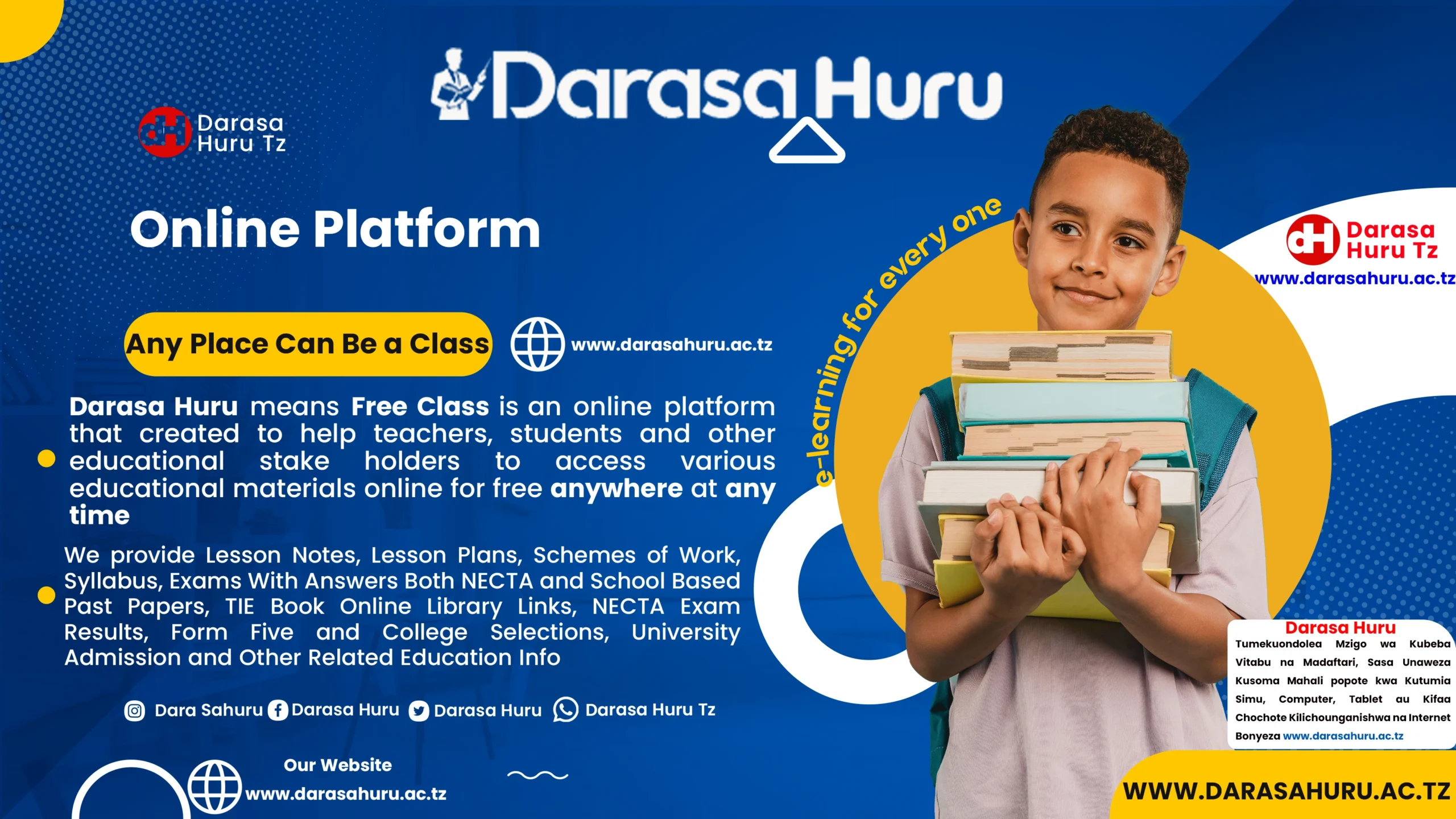


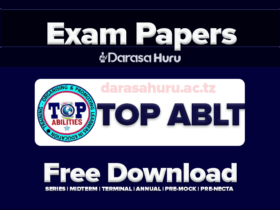
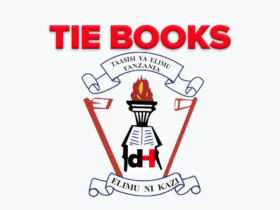

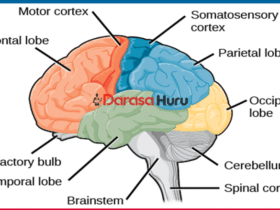
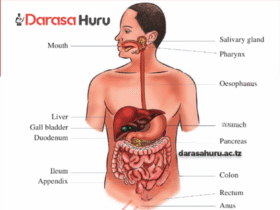
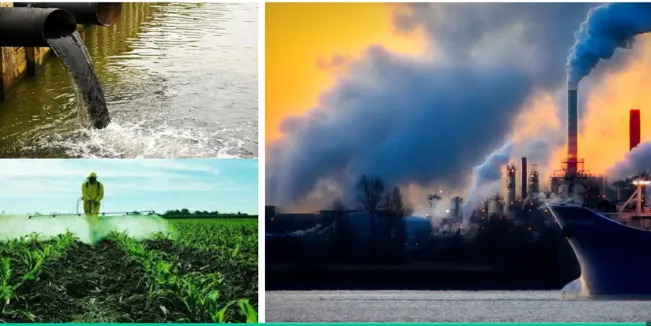


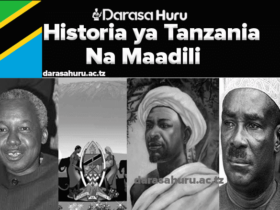
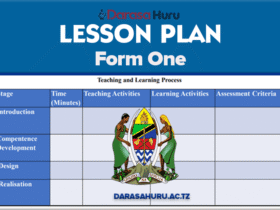
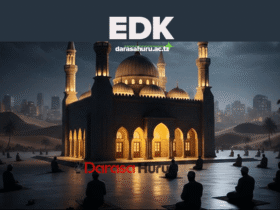
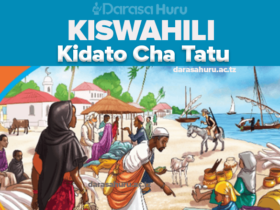

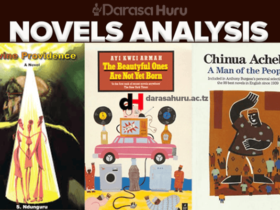
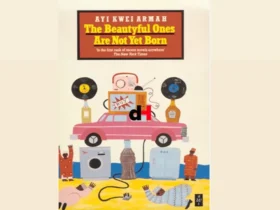
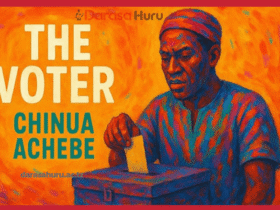

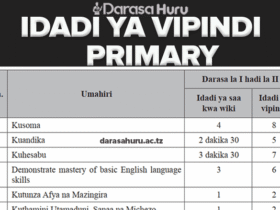
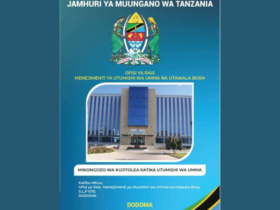
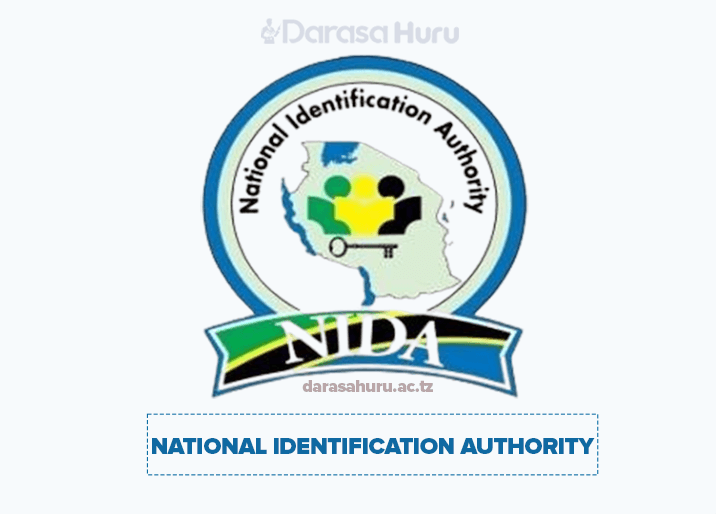

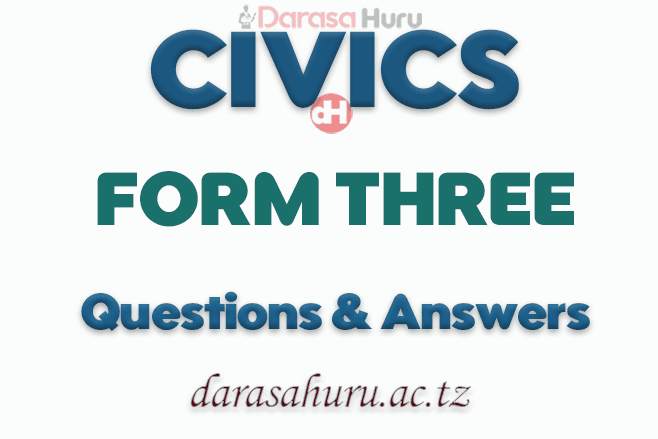




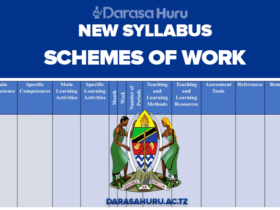
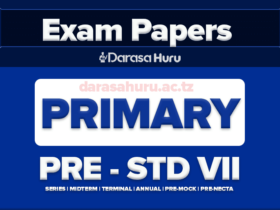

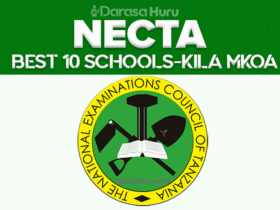

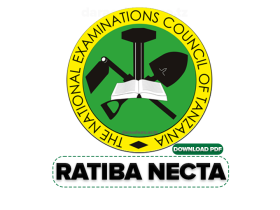

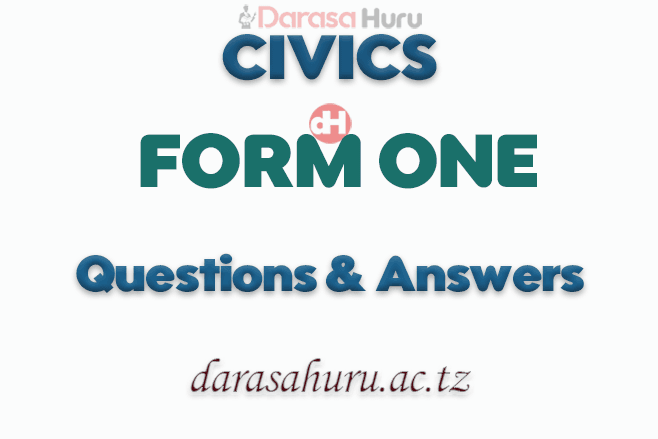
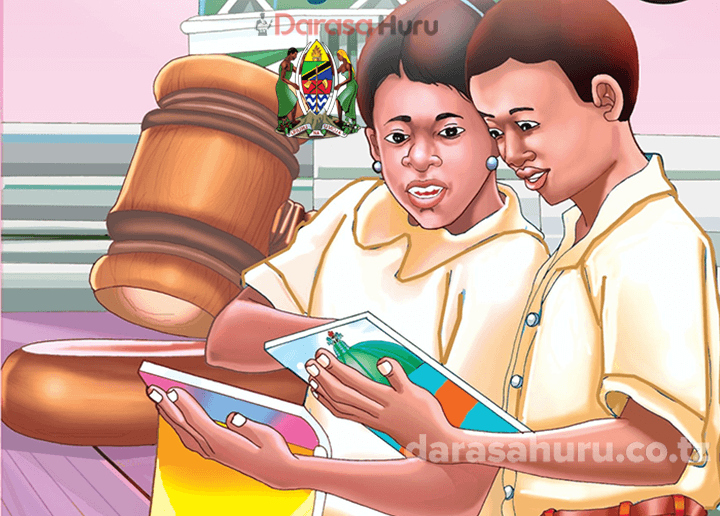
Leave a Reply